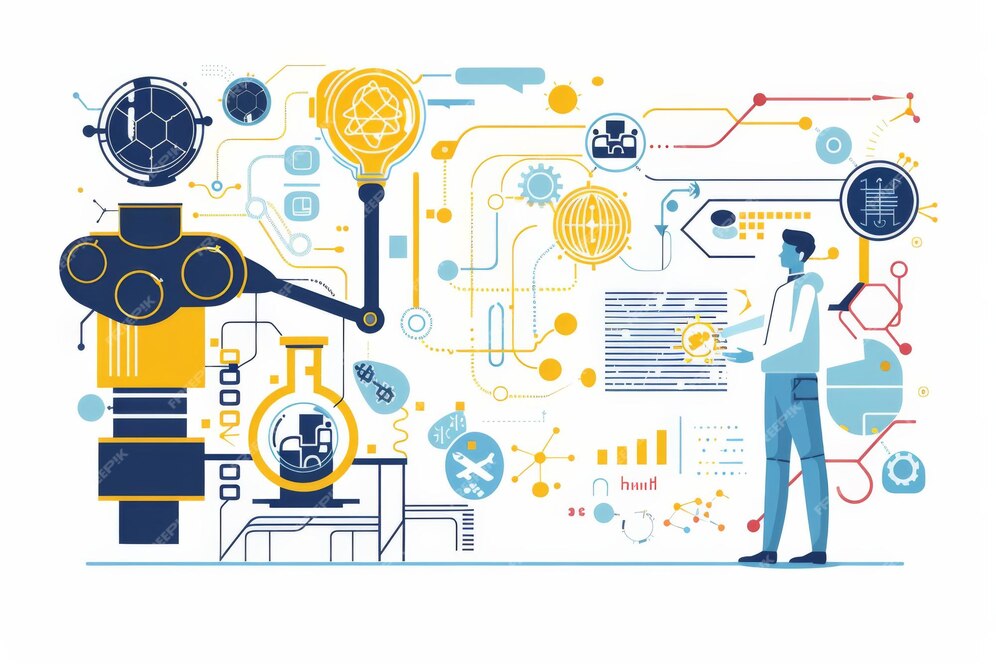Natural Language Processing (NLP) is revolutionizing healthcare by enabling computers to understand and interpret human languages. This technology can improve patient communication, streamline administrative tasks, support personalized treatment, and enhance predictive analytics. The digital revolution of AI in healthcare is addressing challenges like financial constraints, regulatory compliance, and increased workload for doctors.
Comprehending Natural Language Processing
Natural language processing services have the important role to understand how the human language works. This is done in order for machines to eventually comprehend human communication more fully by being able to comprehend and interpret human language. A variety of disciplines, including artificial intelligence, computational linguistics, human-computer interaction, etc., are combined to form natural language processing.
What benefits does NLP offer the healthcare sector?
In essence, machine learning solutions are altering how patients interact with their physicians. Natural language processing algorithms can be used by chatbots and virtual assistant interfaces to create natural language dialogues with patients. They will handle the patients’ concerns, offering them individualized support to answer their questions, making appointments, and reminding them to take their meds. These apps not only increase patient happiness but also serve as a useful tool for expanding the scope of care and improving accessibility.
Use Cases and Applications
- Clinical Documentation Improvement (CDI)
- Clinical Decision Support Systems (CDSS)
- Health Information Extraction
- Sentiment analysis and patient feedback
- Remote Patient Monitoring and Health Monitoring
- Clinical study Matching
- Automated Clinical Coding and Billing
- Analysis of social media, news media, and other sources
Advantages of Applying Natural Language Processing to Healthcare:
- Proved Clinical Decision-Making
- Enhanced Patient Engagement and Experience
- Effective Clinical Documentation and Coding
- Population Health Management
- Accelerated Medical Research
Challenges to NLP in Healthcare
- Complexity of language
- Data restrictions
- Integration of systems
- Concerns about regulations and compliance
Future Trends for NLP in Healthcare
Developments in Machine Learning and AI: Advancements in machine learning consulting and intelligence systems are expected to lead to intelligent solutions in natural language processing services, making NLP in healthcare systems a crucial tool.
Precision Health and Personalized Medicine: Natural Language Processing (NLP) in healthcare uses genetic data, clinical and lifestyle factors to develop personalized medicine and precision health programs, generating competitive insights for patient care.
Interoperability and Data Integration: Interoperability and integration of health information systems can enable the use of NLP solutions to handle data and eliminate barriers to data exchange.
Explainable AI and Interpretability: In order to comprehend how algorithms arrive at their conclusions, healthcare providers will thus need to demand transparency and accountability in the insights produced by NLP-based systems. Afterward, artificial intelligence solutions company will utilize the algorithmic recommendations to offer clinical decision-making advice.
Ethical and Regulatory Frameworks: Healthcare organizations, legislators, and regulators are creating an ethical code and standard standards to prevent misuse and uphold patients' privacy, autonomy, and well-being in the use of NLP technology.
Natural Language Understanding and Generation: NLP algorithms will enhance human language comprehension for text-generating devices, enabling the adoption of chatbots, virtual assistants, and conversational agents in the healthcare industry, providing personalized support.
Conclusion
There is a lot of potential for NLP in healthcare. Yet at the same time there are its very own challenges to solve. Potential key challenges include the complexity of clinical terminology and the need for differentiation among terms and phrases. A large language model development company will have to ensure patients’ privacy and security to avoid ethical issues.
For more details: https://www.a3logics.com/blog/improving-patient-outcomes-with-nlp-in-healthcare/






Comments